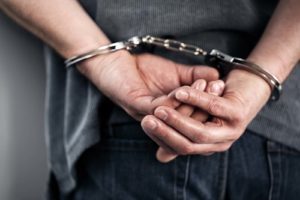The term “white-collar” crime is commonly used to describe nonviolent crimes. Typically, these offenses may be committed by business and/or government professionals who are motivated by making money. As has been seen in the news over the past several years, a single white-collar crime can take down a business or a family financially by wiping out its funds.
Individuals and corporations may be charged with white-collar crimes. The consequences of a conviction of a white-collar crime are many: forfeiture of assets, supervised release and/or imprisonment, hefty monetary fines, home detention as well as court-ordered restitution payments. If an accused of a white-collar crime assists law enforcement authorities with an ongoing criminal investigation his or her sentencing may be reduced – depending on the circumstances. Sentencing guidelines followed by South Carolina courts must take several factors into account when imposing a sentence. Some, but not all of these factors include: the crime for which the defendant has been convicted; the defendant’s prior criminal record (if any); and any other mitigating factors that may be taken into account for sentencing.
Types of White-Collar Crimes
White-collar crime is a specialized area of the law that is complex and ever-evolving. The procedures that govern the cases, including the process the government follows when prosecuting a white-collar crime as well as the process the court utilizes when deciding how to rule on a case, are typically the same as all other federal criminal cases. For this reason, it is critical that a skilled and aggressive criminal defense attorney is hired if you or someone you know has been accused of this type of offense.
Some of the most common white-collar crimes include:
- Bankruptcy fraud – when a debtor conceals assets to avoid forfeiture, intentionally files false or incomplete forms with the court, the same person files multiple bankruptcies, or an individual attempts to bribe a court-appointed trustee;
- Health care fraud – this offense involves the fraudulent filing of healthcare forms in order to turn a profit;
- Real estate fraud – if one party uses false information or intentionally falsely misrepresents information in order to gain an advantage during a real estate transaction, fraud has occurred;
- Tax crimes – when someone intends to defraud the government by not paying taxes that he or she knows is lawfully due to the government, and he or she takes actions to defraud the government, tax fraud has occurred;
- Immigration fraud – an example of this includes when a fake marriage is entered into for the purpose of gaining lawful permanent residence into the United States;
- Internet and computer crimes – when any crime involves a computer, a network and/or the internet and is committed against individuals or groups of individuals with the motive to harm the reputation or cause physical or mental harm to the victim(s), an internet and computer crime has occurred;
- Securities and commodities crimes – this offense can come in a variety of forms and includes advance fee fraud, ponzi schemes, pyramid schemes, and precious metal fraud, among others.
- Embezzlement – this offense is defined as the use of company funds for personal use;
- Accounting fraud – when someone manipulates the company books to distort the financial position of a company, accounting fraud has happened.
- Insider trading – when non-public information is used to sell or buy stock before the general public, and this is intentionally done so in order to turn a profit or avoid a loss, there has been insider trading.
White Collar Crime Defenses
The elements of a white-collar crime are, at their very foundation, no different than any other criminal offense. They include (1) a bad act, (2) criminal intent and (3) causation. Under South Carolina law, as well as federal law, the government – i.e. the prosecutor – must prove every single element of the crime charged against an accused in order to succeed in a conviction of the offense. Notwithstanding, an accused can utilize several available defenses. Some of common defenses include insanity, duress, incapacity or intoxication. It’s possible that the most common defense of all is entrapment.
- Defense #1: insanity: presented before a judge and jury in an effort to avoid liability for the commission of a crime, insanity does not negate the fact that the defendant committed the criminal act but, rather, claims that he or she did not appreciate the nature or quality of the wrongfulness of the act(s) because of his or her mental state. In other words, insanity is a justification for committing the act.
- Defense #2: duress: this defense requires that the accused successfully establish the only reason the crime was committed was because of a threat. He or she must show that (1) the threat was of serious bodily harm or death; (2) the threatened harm was in fact greater than the harm caused; and (3) the threat was both both immediate and inescapable.
- Defense #3: incapacity or intoxication: similar but different, these defenses may be used in a court of law on behalf of an accused. Incapacity is the lack of ability or fitness to commit a specific act. On the other hand, an accused who is a claiming the defense of intoxication will likely seek diminished responsibility for the crime due to his or her intoxicated state.
- Defense #4: entrapment: when a government actor presents someone with the opportunity to commit a criminal act that the person would not have otherwise committed but for the lure, this is known as entrapment. When entrapment is used on behalf of an accused, a skillful criminal defense attorney argues the client had no tendency to commit the act – in other words, was not predisposed to commit the crime – but for the government’s enticement.
An accusation of a white-collar crime – or any criminal offense, for that matter – can be devastating. A criminal conviction can adversely affect your career, finances, reputation, and future. Due to the complexities associated with white-collar crime defense, anyone accused of this type of crime should contact a skilled South Carolina criminal defense attorney right away to understand his or her rights under state and federal laws.
Greenville Criminal Defense Attorney
Criminal charges can be serious. Do not risk your freedom. The Law Office of H. Chase Harbin has years of experience defending clients across South Carolina. If you or someone you know has been arrested for a criminal offense, has received a target letter, or is under investigation by a law enforcement agency, call our firm today for an initial consultation.

Chase Harbin is a Criminal Defense Lawyer who practices in Pickens and Greenville, SC. He graduated from the University of South Carolina School of Law, and has been practicing law for 17 years now. Chase Harbin believes in defending the accused. Learn more about his experience by clicking here.

